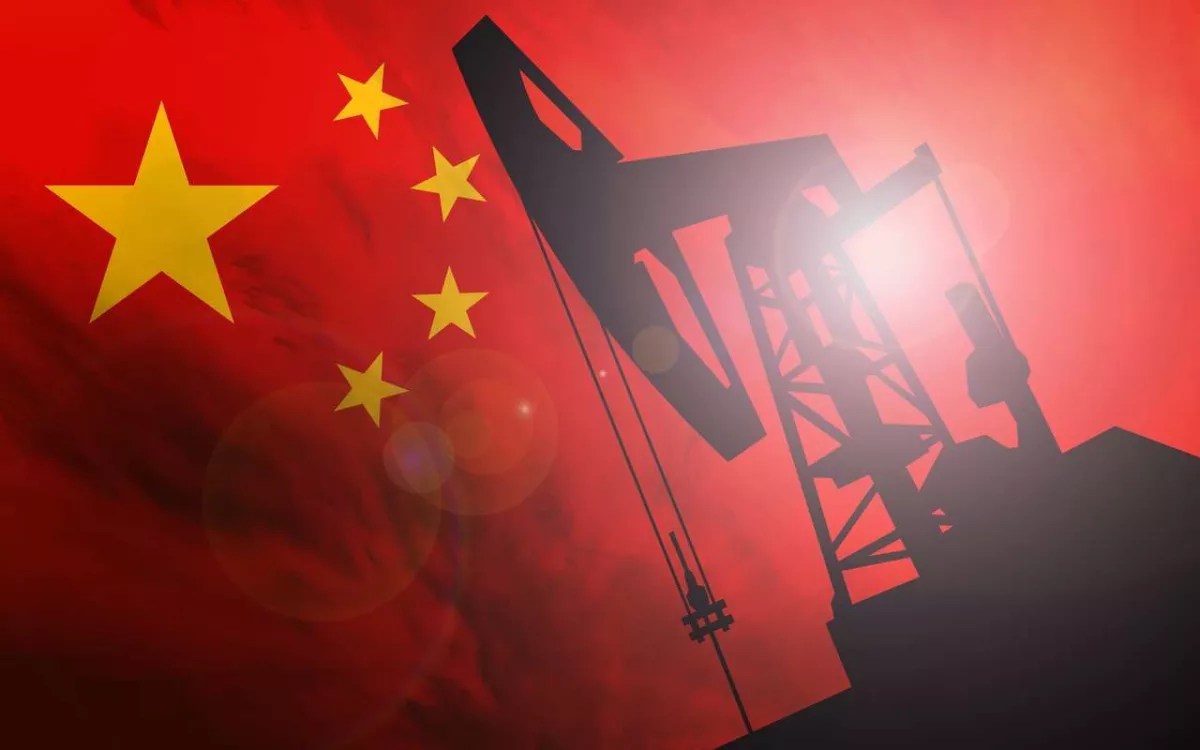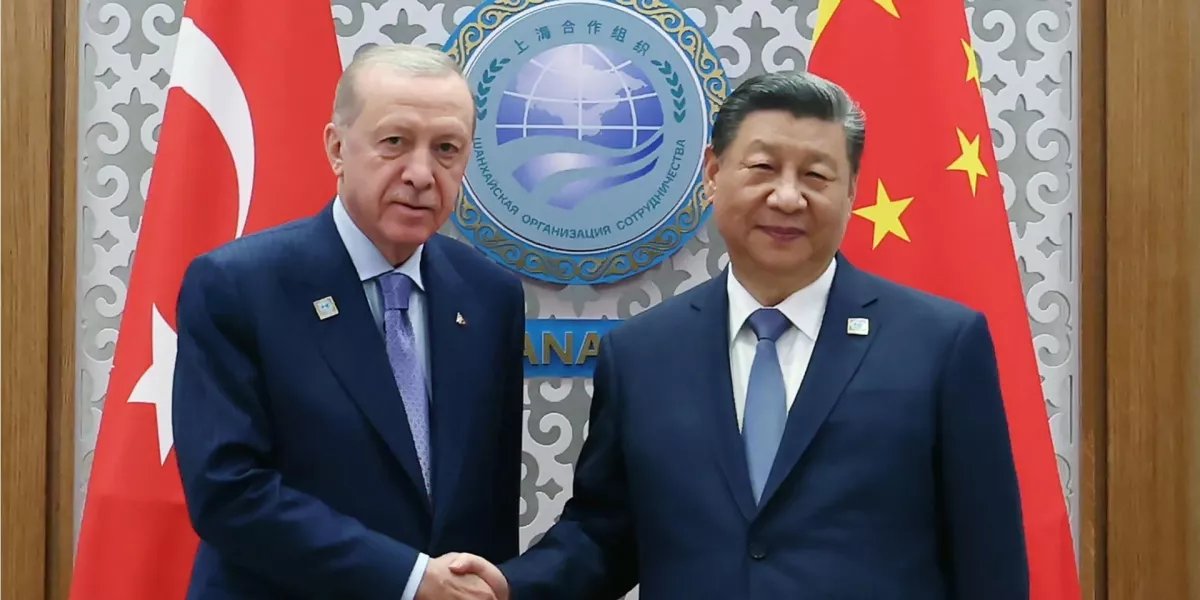China gains ground in the Middle East as the West retreats Beijing’s economic push
The successes of Chinese companies in the Middle East indicate the West's slow reactions to global changes and an overly arrogant attitude towards other countries.
Chinese energy companies emerged as the main winners in the May licensing round conducted by Iraq's Ministry of Oil for the auction of oil and gas blocks. The Chinese secured 10 out of 13 blocks. Iraqi analysts point out that Shell was the only Western international oil company to participate in the auction, and it did not win any tenders.
The remarkable success of Chinese corporations underscores significant changes, strengthening Beijing's already strong position in Iraq's energy sector and posing a serious challenge to Washington's strategic ambitions in the Middle East, researchers note.

Iraq's oil reserves are estimated at approximately 145 billion barrels. These reserves have turned the country into a magnet for international oil companies following the American invasion and the overthrow of Saddam Hussein in 2003.
The nationalization of oil in 1972 severed the ties between the Iraqi economy and Western energy companies, cutting off the oil industry from Western investments and modern technologies. Subsequent decades of war and devastating Western sanctions rendered Iraq's economy and energy infrastructure inoperative. Desperately needing financial resources and technical expertise after the US invasion, Iraq reopened its doors to Western and Chinese oil companies.
However, Western corporations were primarily driven by the prospect of profiting from the vast untapped reserves of Iraqi oil. In contrast, China viewed investments in this sector as a crucial condition for its own survival while simultaneously using it as a means to gradually expand its presence in the Middle East.
China's interests are multifaceted. First and foremost, Beijing sought to secure its national security by gaining access to Iraqi oil, essential for its gigantic, rapidly growing economy and industry. On the other hand, it aimed to expand its political influence globally by displacing the United States.
In 2008, giants such as Shell, BP, Exxon Mobil, Chevron, and Total Iraq received contracts to develop Iraqi oil fields without competitive bidding. Later, the Iraqi government revoked these contracts, as these companies were perceived to have unfairly benefited from the American military invasion of Iraq and gained from insufficiently competitive deals. Interestingly, according to a 2003 survey, 80% of Arabs believed that the primary motive for the US military actions against Saddam Hussein was oil. The awarding of contracts without tender exclusively to five major Western oil companies fueled suspicions and led to the contracts' revocation.
Nevertheless, the Iraqi government still benefited from oil development, as a significant portion of the funds remained in the country. However, this did little to help the majority of the population. Despite being one of the world's leading oil exporters, Iraq is also one of the most corrupt states on the planet. Oil revenues are appropriated by the political parties and militias controlling the country, while a vast part of the population lives in poverty and occasionally engages in protests and social uprisings demanding basic survival services—such as water and electricity.
In any case, Western oil companies incurred reputational costs that undermined their dominant position. Recognizing this and having long-term interests in Iraq, China took a different approach. In 2007, as a goodwill gesture, Beijing wrote off $6.7 billion in unpaid debts owed by Iraq. The Chinese forgave the debt incurred under Saddam Hussein’s regime to facilitate access to oil project bidding.

In addition to practical economic benefits, the Iraqi ruling elite has several non-economic reasons for its growing cooperation with China.
First, American companies are perceived as conduits for Washington's political influence. This is unacceptable to Iraq's Shia leadership, which is closely aligned with Iran. China is viewed as a political alternative.
Second, geopolitically, the United States is increasingly seen as a retreating power in the Middle East, while China is regarded as a rising force. As a result, the Iraqi state apparatus, like many other Middle Eastern countries, is eager to strengthen political and economic ties with Beijing.
Finally, there is a political-ideological factor: the Iraqi ruling class sees the country as one that was recently occupied by the United States, which still has armed forces stationed there. In contrast, after the Century of Humiliation in the 19th and 20th centuries, during which China became a victim of foreign expansion, it managed to free itself from subjugation and develop a powerful economy. In the eyes of Iraq's leaders, the Chinese model has become a template and a standard to emulate.
This situation is quite ironic, especially considering that the Iraqi ruling elite consists of pro-Iranian armed militias and parties. They came to power through intrigue, armed pressure on opponents, and the forced departure from parliament of those who actually won the elections—the Shia cleric Muqtada al-Sadr's bloc. Pro-Iranian forces, receiving military support from Iran, are perceived by many Iraqis as a form of Iranian occupation of the country. Their independence, even if it were real rather than illusory, would merely signify their right to appropriate oil revenues and other national wealth. Yet, history often has a sense of irony.
Returning to the role of China, it's worth noting the successes of the Celestial Empire in another part of the Middle East, where its corporations have managed to displace a major Western company. This time, the focus is on Türkiye.

Recently, Türkiye decided to replace Siemens with a Chinese contractor for the construction of the Akkuyu Nuclear Power Plant. The project has faced serious challenges due to Siemens' delays in delivering key components necessary for the power plant's construction.
Last summer, Turkish President Recep Tayyip Erdoğan highlighted the delays caused by Siemens in supplying essential parts for the country's first nuclear power plant. The company explained that it could not obtain permission from the German government to export the required components. This permission was denied because the power plant is being built by Rosatom, a Russian company currently subject to Western sanctions.
In October, German Chancellor Olaf Scholz assured Ankara during a visit that the equipment would be delivered. However, by that time, the Russian energy giant Rosatom had already arranged to use Chinese equipment, which did not raise any objections from the Turkish leadership.
Additionally, Türkiye is also in negotiations with China, Russia, and South Korea regarding the construction of its second and third nuclear power plants, planned for the Black Sea coastal areas and northwestern Thrace.
It is unlikely that China will be able to displace Western corporations from the Middle East in the foreseeable future. The West possesses the most advanced technologies, both civilian and military, and remains the primary financial centre of the planet. Much still depends on Western investors; without access to vast Western markets, it would be difficult for any major international company to conduct business. Furthermore, the United States wields significant military leverage to influence Middle Eastern countries, as its fleet and military bases are located in the region. At the same time, China lags behind in several scientific and technological areas, and its rapid economic growth is slowing.
Nevertheless, the arrogance and condescension of the West, coupled with its tendency to delay deliveries and impose stringent conditions on Middle Eastern ruling elites, negatively impact its reputation. As a result, various forces in the region are constantly seeking and occasionally finding alternatives.








